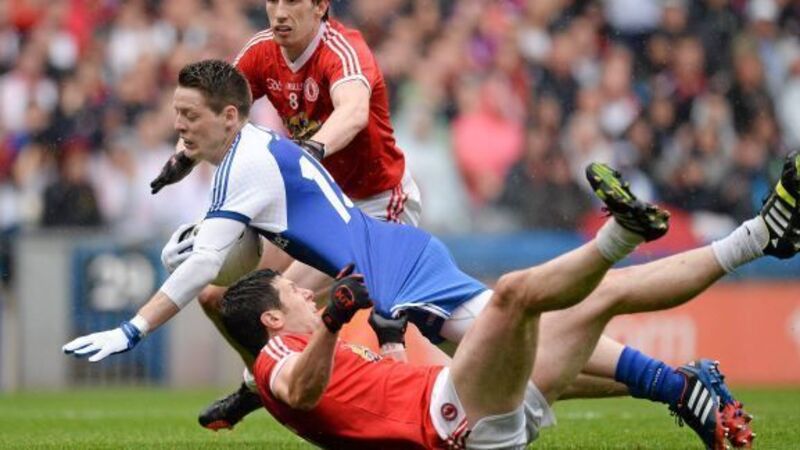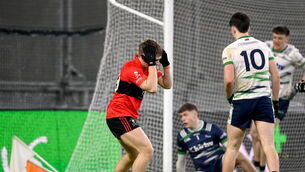Six proposals to help referees rid football of rampant cynicism

Nobody in the corridors of Croke Park celebrated Sean Cavanagh’s foul on Conor McManus seven days ago but that moment couldn’t have helped their campaign more.
Forget what followed. That one of the poster boys of Gaelic football felt he had to resort to such a professional foul — and not for the first time — was enough to crystalise the habit that’s hurting the game.













